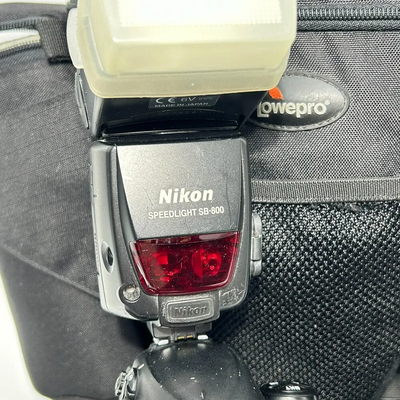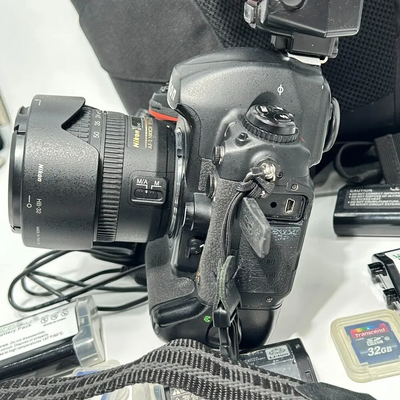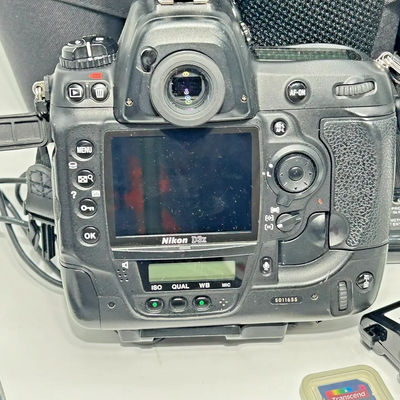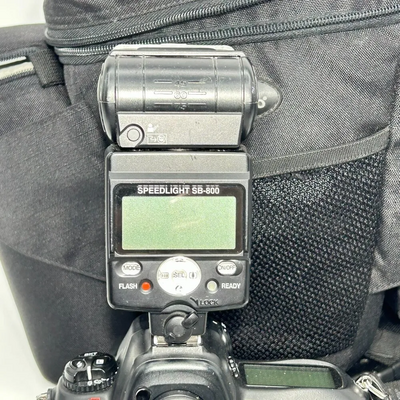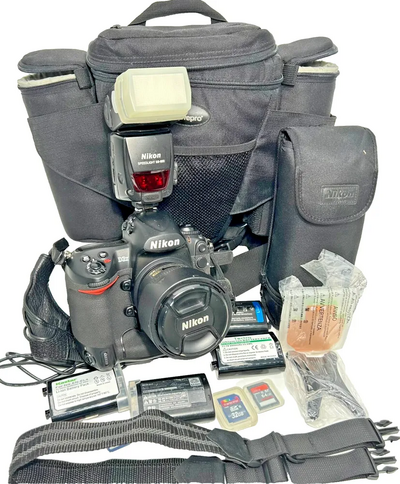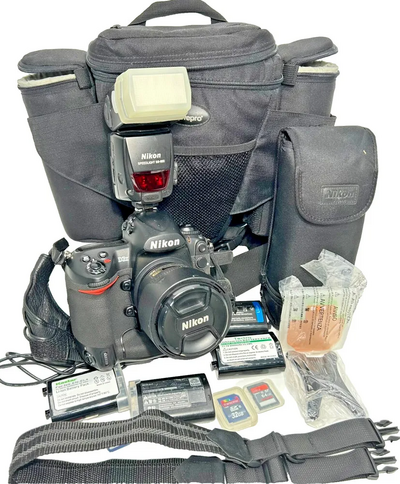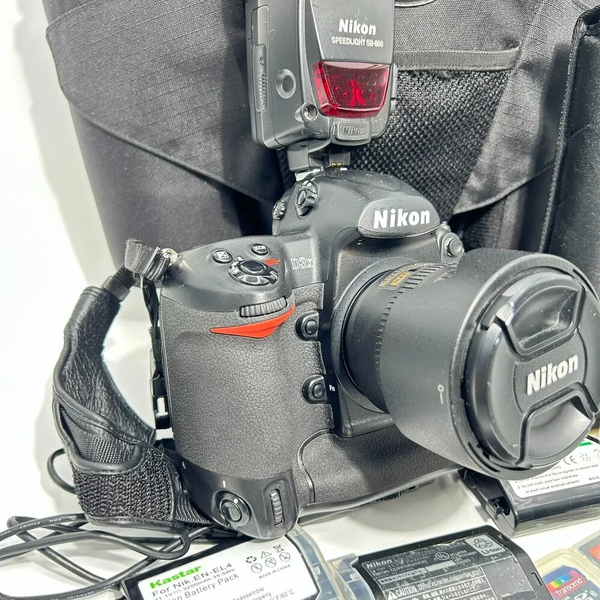
Nikon Speedlight 800
| Brand | Nikon 2003 |
| Model | SB-800 |
| Released Year | 2003 |
| Type | Digital Cameras |
| Series | SB |
| Color | Black |
| Status | Discontinued |
Quick view
Overview
The Nikon SB-800 is a professional-grade speedlight designed for Nikon DSLR cameras, introduced in 2003. It supports i-TTL flash metering, providing precise exposure control and compatibility with Nikon's Creative Lighting System (CLS). The flash head can swivel horizontally and tilt vertically, allowing flexible lighting angles and bounce flash capability. It includes a built-in wide panel and diffusion dome for even light distribution. Power is supplied by four AA batteries, and the unit supports both manual and automatic flash modes. The SB-800 communicates with the camera for real-time adjustments, enhancing photographic lighting quality.
Specifications
| Maximum Aperture | f/3.5 |
| Screen Size | 2.8 in |
| Color | Black |
| MPN | Does Not Apply |
| Item Length | See Pics |
| Battery Type | Lithium-Ion |
| Series | Nikon D |
| Type | Digital SLR |
| Item Height | See Pics |
| Model | Nikon SB-800 |
| Connectivity | Hot shoe mount, wireless CLS |
| Features | Auto Focus, Built-in Flash |
| Country/Region of Manufacture | Thailand |
| Item Width | See Pics |
| Item Weight | See Pics |
| UPC | Does not apply |
| Device type | External flash (Speedlight) |
| Flash Guide Number | 38 (ISO 100, meters) |
| Power source | 4x AA batteries |
| Flash modes | i-TTL, Manual, Repeating flash |
| Tilt range | 0° to 90° |
| Swivel range | 180° left and right |
Images
Key Advantages
The Nikon SB-800 offers excellent compatibility with Nikon DSLRs, ensuring seamless integration. Its versatile swivel and tilt head provide creative lighting options for various shooting scenarios. The i-TTL metering system provides reliable and accurate flash exposure. It also supports remote wireless flash control, expanding creative possibilities. The built-in diffuser and wide panel improve lighting softening and coverage. The flash recycles quickly, enabling rapid shot sequences without delay.
Limitations
The SB-800 is heavier and bulkier compared to newer, more compact flash models. Its power source relies on AA batteries, which may limit shooting duration under intensive use. The unit does not support newer Nikon wireless standards introduced after its release. It may exhibit slower recycle times with weak batteries compared to modern lithium-ion options. The interface and menu options are less intuitive compared to recent models. Lastly, the flash is discontinued, so replacement parts and official service may be limited.
FAQ
What type of batteries does the Nikon SB-800 use?
The Nikon SB-800 uses four AA batteries to power the flash unit.
Is the SB-800 compatible with all Nikon DSLR cameras?
The SB-800 is compatible with most Nikon DSLR cameras that support i-TTL flash metering and the Creative Lighting System.
Can the SB-800 be used as a wireless remote flash?
Yes, the SB-800 supports Nikon's CLS wireless flash control to function as a remote flash unit.
Does the SB-800 support manual flash control?
Yes, the SB-800 supports both manual and automatic i-TTL flash modes for flexible exposure management.
Is the Nikon SB-800 still in production?
No, the Nikon SB-800 has been discontinued and replaced by newer speedlight models.
What is the recycle time for the SB-800?
Recycle time varies depending on battery condition but typically ranges from 2.5 to 5 seconds.
Does the SB-800 have a swivel and tilt flash head?
Yes, the SB-800 flash head swivels 180 degrees horizontally and tilts from 0 to 90 degrees vertically for versatile lighting angles.
Disclaimer
The content on is provided for general informational purposes only. We do not guarantee the accuracy, completeness, or reliability of any information, specifications, or visuals presented on the site.
is not responsible for any content, images, or data uploaded or shared by users. Users are solely responsible for the content they submit.
We may include links to third-party websites for convenience. We do not endorse or take responsibility for the content or policies of any external sites.
Use of the site is at your own risk. Always verify critical information independently before making decisions based on content from this website.

